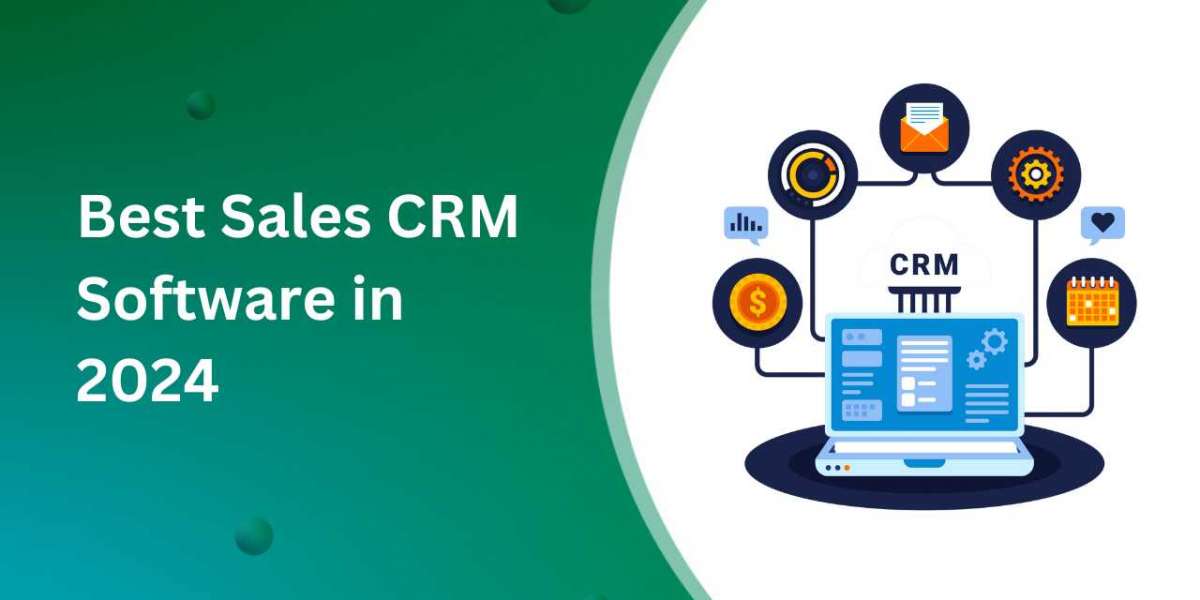Best Sales CRM Software in 2024
In today's fast-paced business world, managing customer relationships and streamlining sales processes are crucial for success. This is where Customer Relationship Management (CRM) software comes into play. A good sales CRM can make all the difference in how efficiently your team operates and how effectively you can grow your business. In this comprehensive guide, we'll explore the best sales CRM Software options available, including key features to look for and how they can benefit your sales process.
What is Sales CRM Software?
Sales CRM software is a powerful tool designed to help businesses manage their interactions with current and potential customers. It serves as a central hub for storing customer information, tracking sales activities, and analyzing performance data. A well-implemented CRM system can significantly improve your sales process, boost team productivity, and ultimately drive more revenue.
Key Features to Look for in a Sales CRM
When evaluating sales CRM options, consider the following essential features:
- Lead Management System: An effective Lead Management System allows you to capture, track, and nurture leads throughout the sales cycle. Look for CRMs that offer lead scoring, automated lead assignment, and tools for qualifying prospects.
- Sales Pipeline Visualization: A clear view of your Sales Pipeline is crucial for understanding where deals stand and identifying bottlenecks. The best CRMs provide customizable pipeline views and drag-and-drop functionality for easy management.
- Sales Process Automation: Automation features can save your team valuable time by handling repetitive tasks. Look for CRMs that offer workflow automation, email templates, and scheduling tools.
- Reporting and Analytics: Robust reporting capabilities help you gain insights into your sales performance. Look for CRMs that offer customizable dashboards, real-time data updates, and the ability to generate detailed reports.
- Integration Capabilities: Your CRM should integrate seamlessly with other tools your team uses, such as email platforms, marketing automation software, and customer support systems.
Now that we've covered the key features, let's dive into some of the best sales CRM software options available:
Top Sales CRM Software Options
- Salesforce
Salesforce is a powerhouse in the CRM world, offering a comprehensive suite of tools for businesses of all sizes. Its Sales Cloud platform provides robust lead management, opportunity tracking, and sales forecasting capabilities. With its highly customizable nature and vast ecosystem of third-party integrations, Salesforce can adapt to virtually any Sales Process.
Pros:
- Extremely customizable
- Extensive third-party app marketplace
- Powerful analytics and reporting tools
Cons:
- Can be complex for small businesses
- Higher price point compared to some competitors
- HubSpot CRM
HubSpot CRM is known for its user-friendly interface and generous free plan, making it an excellent choice for small to medium-sized businesses. It offers a comprehensive set of tools for managing contacts, deals, and tasks, as well as built-in email tracking and scheduling features.
Pros:
- Free plan with essential features
- Intuitive user interface
- Seamless integration with HubSpot's marketing and service hubs
Cons:
- Advanced features require paid upgrades
- Can become expensive as you add more tools and contacts
- Pipedrive
Pipedrive is a sales-focused CRM that excels in pipeline management and visual sales process tracking. Its clean, intuitive interface makes it easy for sales teams to adopt and use effectively. Pipedrive offers customizable pipelines, activity reminders, and email integration to keep your sales process on track.
Pros:
- Highly visual and intuitive pipeline management
- Mobile app for on-the-go access
- Customizable fields and workflows
Cons:
- Limited marketing automation features
- Reporting capabilities may be basic for some users
- Zoho CRM
Zoho CRM is part of a larger suite of business tools, offering a well-rounded solution for sales team. It provides robust lead and contact management, workflow automation, and multi-channel customer engagement tools. Zoho CRM also stands out for its AI-powered assistant, Zia, which can provide sales insights and predictions.
Pros:
- Competitive pricing
- AI-powered sales assistant
- Extensive integration with other Zoho products
Cons:
- User interface can be less intuitive than some competitors
- Some advanced features require higher-tier plans
- Salestown CRM
Salestown CRM is a newer player in the market but has quickly gained attention for its focus on simplicity and effectiveness. Designed with small to medium-sized businesses in mind, Salestown CRM offers a streamlined approach to sales management without sacrificing powerful features.
Pros:
- User-friendly interface with minimal learning curve
- Affordable pricing plans
- Strong focus on lead management
Cons:
- Fewer third-party integrations compared to larger CRMs
- May lack some advanced features found in enterprise-level solutions
Choosing the Right Sales CRM for Your Business
Selecting the best sales CRM software for your business depends on several factors:
- Business Size and Complexity: Larger enterprises may require the extensive customization options of Salesforce, while smaller businesses might prefer the simplicity of HubSpot or Salestown CRM.
- Budget: Consider both upfront costs and long-term expenses as your business grows. Some CRMs offer free plans with basic features, while others require significant investment for full functionality.
- Specific Needs: Identify the key features that are most important for your sales process. For example, if pipeline visualization is crucial, Pipedrive might be an excellent choice.
- Scalability: Choose a CRM that can grow with your business. Look for options that offer tiered plans or modular add-ons.
- Ease of Use: Consider the learning curve for your team. A user-friendly interface can significantly impact adoption rates and overall effectiveness.
- Integration Capabilities: Ensure the CRM can integrate with your existing tools and workflows to maximize efficiency.
Implementing Your Chosen Sales CRM
Once you've selected the best sales CRM software for your needs, proper implementation is key to success. Here are some tips for a smooth rollout:
- Plan Thoroughly: Define your goals, map out your sales process, and identify key metrics you want to track.
- Customize Your Setup: Take the time to configure the CRM to match your specific sales process and terminology.
- Clean Your Data: Before migrating, clean and organize your existing customer data to ensure accuracy in the new system.
- Train Your Team: Provide comprehensive training to ensure all users understand how to use the CRM effectively.
- Start Small: Consider a phased rollout, starting with a pilot group before expanding to the entire team.
- Monitor and Adjust: Regularly review your CRM usage and gather feedback from your team to make necessary adjustments.
Conclusion
Choosing the best sales CRM Software is a critical decision that can significantly impact your business's success. By carefully considering your needs, budget, and the features offered by top CRM solutions like Salesforce, HubSpot, Pipedrive, Zoho CRM, and Salestown CRM, you can find the perfect fit for your sales team.
Remember, the most powerful CRM is the one that your team actually uses. Focus on finding a solution that balances functionality with ease of use, and don't be afraid to take advantage of free trials to test different options. With the right sales CRM in place, you'll be well-equipped to manage your leads, optimize your sales pipeline, and drive your business forward in today's competitive landscape.






